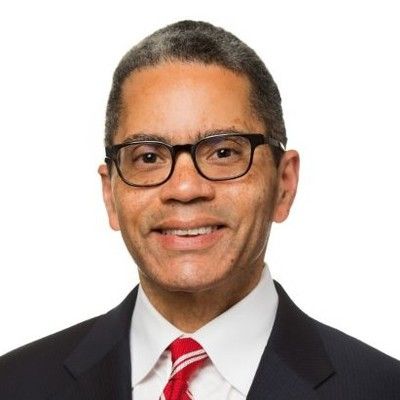Hospitals helped by $1.7 trillion omnibus bill, but will press Congress for more next year
The package offered funds for key areas, such as telehealth and rural hospitals, but lacked targeted aid for safety net hospitals and failed to address other priorities.
Hospitals secured some of their key priorities in the $1.7 trillion federal spending package, but they didn’t get everything they wanted.
Health systems received aid for rural hospitals and key extensions for telehealth and home-based hospital programs. The measure also blocked most, but not all, of planned cuts in Medicare programs affecting health systems, medical groups and physicians.
But hospital leaders said they would be pressing lawmakers to address some other areas that didn’t make it in the federal spending package. Congress approved the package just before the holidays, and President Biden signed the spending bill Dec. 29.
Bruce Siegel, president and CEO of America’s Essential Hospitals

Bruce Siegel, president and CEO of America’s Essential Hospitals, said he supported much of the package.
"We thank congressional negotiators for supporting essential hospitals and their communities by agreeing to shore up the health care workforce, expand access to mental health and substance use disorder services, and extend flexibility for alternative care settings,” Siegel said in a statement.
At the same time, Siegel said he was disappointed in some omissions in the package.
“We are disappointed it lacks targeted funding for hospitals that serve a safety net role — essential hospitals,” Siegel said. “These hospitals continue to face immense financial pressure from high labor costs and workforce shortages and a surge in respiratory illnesses.”
Rick Pollack, president of the American Hospital Association, said he appreciated that Congress recognized the difficult environment for hospitals.
“This legislation will deliver critical support and resources so we can better care for our patients and create healthier communities,” Pollack said in a statement. “Due to skyrocketing cost increases for supplies, equipment, drugs and labor, challenging workforce shortages, and the ‘tripledemic’ of COVID-19, flu, and RSV, the hospital field is stretched thin and on the brink.”
Looking to next year
Rick Pollack, president and CEO of the American Hospital Association

The AHA plans to continue to press Congress to do more to “strengthen hospitals that care for a disproportionate number of patients covered by government programs or are uninsured,” Pollack said.
The hospital association also will press Congress next year to offer more support for the backlog of patients that can’t be discharged.
Hospital leaders say their financial challenges are being exacerbated because they aren’t able to transfer patients to nursing homes or other long-term care facilities; those facilities also have shortages of beds and nurses. Hospitals had asked Congress for a temporary per diem payment to cover the costs of caring for those patients.
Health systems will also push Congress for help in dealing with payers.
The AHA will ask lawmakers to “hold commercial health insurers accountable for policies that compromise patient safety and add burden to care providers,” Pollack said.
Hospitals and doctors hoped Congress would finalize legislation to offer some reforms to the prior authorization process.
Providers must get approval from payers to move forward with many treatments and services. Hospitals and doctors say the prior authorization process has become too onerous, hurting patients and contributing to physician burnout. Payers say the process reduces costs and prevents unnecessary treatments.
Lawmakers crafted a bill that would have streamlined the prior authorization process for Medicare Advantage programs, which serve 28 million Americans and are gaining in popularity. The bill passed the House, but it didn’t get through the Senate, and wasn’t included in the omnibus spending package.
Victories for hospitals
To be sure, hospitals did succeed in getting much of what they wanted.
Rural hospitals received the lifeline they were seeking. Lawmakers agreed to extend two fundings programs that were slated to expire, and they are crucial lines of support for rural hospitals.
The bill offers a two-year extension for the Medicare-dependent Hospital (MDH) program, which funds more than 170 hospitals. The program offers more assistance to smaller hospitals with a large share of Medicare patients.
In addition, the bill would also continue Medicare’s Low-Volume Hospital (LVH) designation for two more years. The program offers assistance to rural hospitals with a relatively small portion of Medicare patients, and it supports more than 600 hospitals.
Senate leaders also included provisions extending telehealth waivers through 2024, a high priority for healthcare organizations. The government gave healthcare organizations waivers to expand telemedicine services in the COVID-19 pandemic, but the waivers are largely tied to the federal public health emergency designation. It’s unclear how long President Biden’s administration will continue the emergency designation.
In addition, Congress also allowed a two-year extension for hospital-at-home programs. Just as with telehealth, the government offered health systems waivers to extend acute care programs at home. Nationwide, 114 health systems in 37 states are offering home hospital programs.
Pollack cheered the extension of hospital-at-home programs, saying they “have led to improvements in care and made medical treatment more convenient and accessible for patients.”
Hospitals also pressed for the expansion of telehealth waivers, a provision that is part of the final package. The measure would continue telemedicine waivers through 2024.
Telehealth faces a looming deadline in Washington | Healthy Bottom Line podcast
February 12th 2025Once again, the clock is ticking on waivers for telemedicine and hospital-at-home programs. Kyle Zebley of the American Telemedicine Association talks about the push on Congress and the White House.